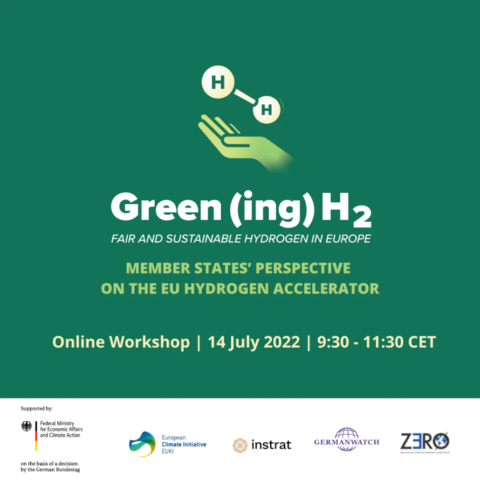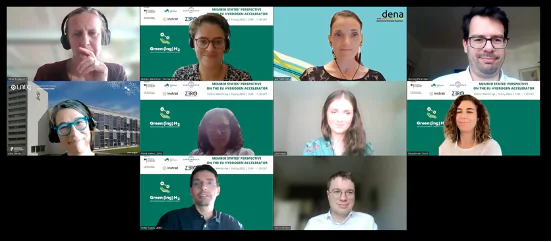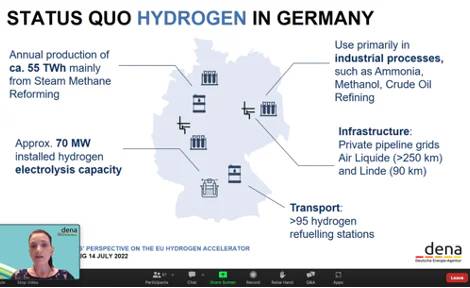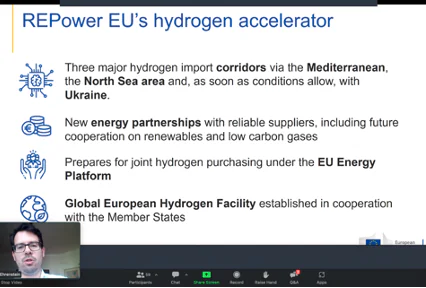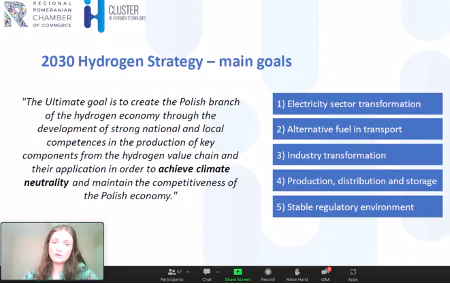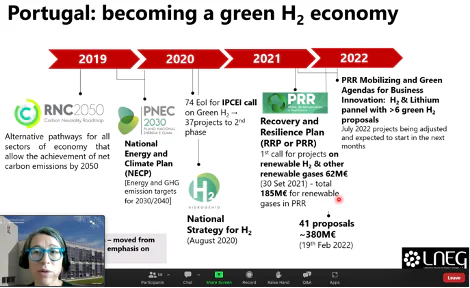Green(ing) H2: EU Workshop
Accelerating the development of the European hydrogen market plays a crucial role in achieving energy resilience and climate neutrality. Despite the blueprint outlined, there are still many challenges and concerns which need to be addressed, to ensure the hydrogen strategy is designed and played out with a focus on sustainability. Hence, and building up on the series of national workshops organised in each consortium’s country, the partnering organisations of the Green(ing) H2 have launched an European level workshop. It aimed to discuss the Hydrogen Accelerator Plan, outlined by the European Commission in the RePowerEU Plan, and cross-check whether it fits with member states’ perspectives and plans by focussing on the consortium countries’ cases: Germany, Poland and Portugal.
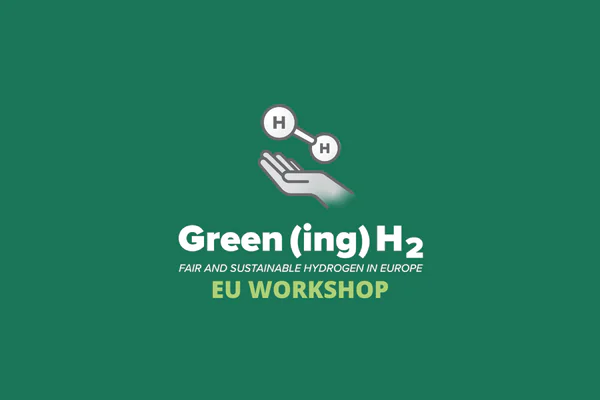
EU WORKSHOP – Member States’ Perspective on the EU Hydrogen Accelerator
Further information
EUKI funded project Green(ing) H2 hosted an outstanding panel of speakers to address different Member States’ Perspective on the EU Hydrogen Accelerator.
Our panellists Esther Bollendorff, Ewa Mazur, Jeannette Uhlig, Henning Ehrenstein and Sofia G. Simões provided an insightful perspective on the German, Polish and Portuguese strategies for the hydrogen economy and how it contrasts and aligns with the Hydrogen Accelerator Plan outlined by the European Commission in the RePowerEU Plan.
Here is a selection of key insights that we gathered:
- The starting points of EU member states (regarding the geographic situation, energy mix, infrastructural preconditions, degree of industrialization, etc.) departing towards the EU green hydrogen market is very heterogeneous, which has resulted in different hydrogen priorities and strategies. The currently drafted EU regulatory framework needs to reflect these differences but also manage to bring member states’ strategies closer together.
- Among the main barriers to a faster and more successful scale-up of green hydrogen production and creation of infrastructure (pipelines and electrolyser), missing additional renewable energy capacities, slow permitting procedures and lack of skilled workforce were mentioned.
- Finalising the definition of green hydrogen seems tricky but has been identified to be key in order to provide a clear set of rules and the investment security needed to build up a robust European green hydrogen market.

